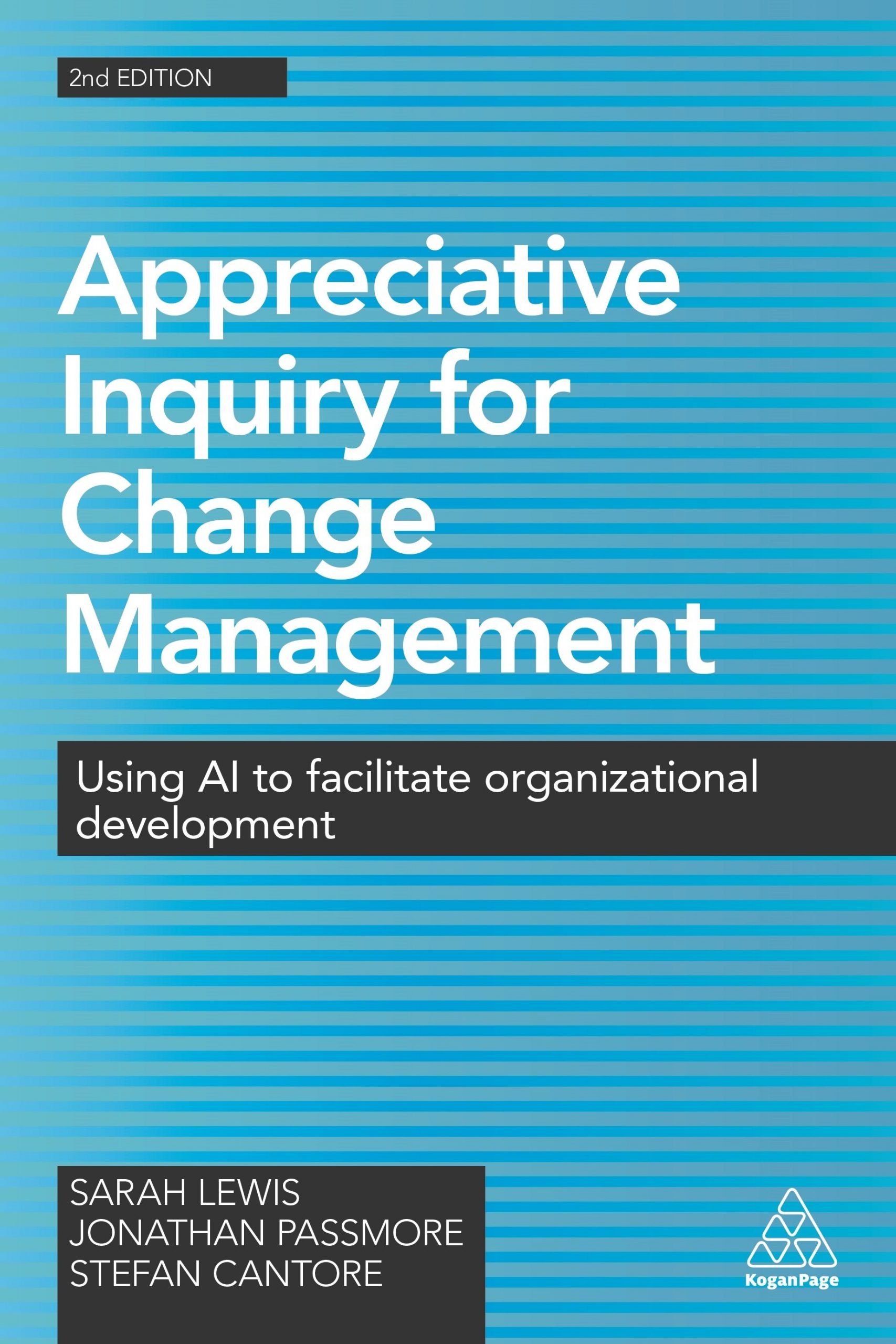Organisations are much richer than simple processes and the simple approaches of fixing broken processes don’t work well with organisational change; However, Appreciative Inquiry can help to empower real, positive change.
Who is this book for?
Anybody who wants to facilitate change, regardless of whether it is for an organisation, team, person, or community.
My highlights from the book:
Frederick Taylor has a lot to answer for, having been the driving force behind the movement to view organisations as machines, workers as cogs, and managers as cog-controllers. The application of these ‘scientific principles’ to organisational change has encouraged us to view organisational change as a process that begins with a problem to be solved (or burning platform) and ends with the right answer. Rather than viewing organisational change as the process of repairing a broken system, there is a real power in treating organisations as ‘living human systems’. Remembering that organisations are human helps shift our focus on to appreciating what is right, to engaging in conversations, to asking questions, and to embracing (rather than ignoring) the emotional aspects of change.
Appreciative Inquiry (in the broadest sense) is a powerful approach to producing change; it works very well in many situations, but there will also be occasions (e.g. in a crisis or turnaround situation with significant time pressure) where it is not necessarily the right approach. The 4D model of Appreciative Inquiry (Discovery, Dream, Design, Destiny) provides a useful framework and can be applied over time or can be applied as four one-day workshops. Appreciative Inquiry is more than just a process, but can be aided by following a process.
Chapters on advanced ideas and practice on ‘the power of the question’, ‘the power of conversation’, ‘working with story’, ‘working with appreciative coaching’, and ‘how positive psychology enhances Appreciative Inquiry’ are packed full of ideas that helped me gain new insights. I particularly liked the exploration of how positive psychology could help people to be resilient throughout change.
Appreciative Inquiry can be applied through approaches such as world café, open space, future search (which was a new approach to me), and the circle. The skilled appreciative conversational practitioner is as much about spirit (e.g. appreciative, curious, generous, playful, irreverent) as about process.
Would I recommend the book?
I went on a bit of a journey with this book; from the title, I expected a simple guide to Appreciative Inquiry and thought it would be predominantly about finding and scaling positive deviance. The introduction chapter had me worried that the whole book was going to be in the style of an academic paper for a journal. Having already pigeon-holed and then dismissed the book by page 6, I thoroughly enjoyed it from page 7 onwards! This is a very well-researched and well-written book that takes a broad look at how Appreciative Inquiry can be used to enable change. The authors have managed to balance a rigour of proven approaches with a humility of recognising that a variety of approaches work across different contexts. The book signposts plenty of further reading, but the case studies were a real stand-out for me. The case studies extend to 74 pages of the book but they aren’t the common, shallow case studies that are often included to simply illustrate the authors’ point. Rather, they remind me of the proper heavyweight case studies that I encountered in business school where you can study, think, and debate and they really brought the approaches alive for me. This is a great book from which I’ve taken nuggets that will inform both my coaching and facilitation, and will be a great resource for those seeking to enable change in a positive way. Recommended.
Ian Pettigrew, Kingfisher Coaching – www.kingfishercoaching.com









